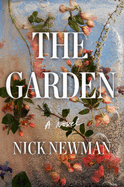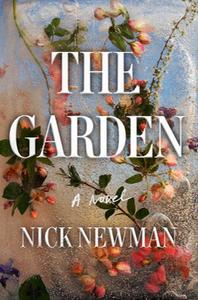
 Nick Newman's The Garden is a shape-shifting novel, an enigmatic fable that twists slowly into a more sinister dystopian narrative with a surprising turn at the end. The questions it asks and the hard truths its protagonists turn away from will keep readers intrigued.
Nick Newman's The Garden is a shape-shifting novel, an enigmatic fable that twists slowly into a more sinister dystopian narrative with a surprising turn at the end. The questions it asks and the hard truths its protagonists turn away from will keep readers intrigued.
Evelyn and her younger sister, Lily, have lived in the garden all their lives, more or less. They remember little from before, although in the early years there were parties, their father holding court, their mother overseeing. Then the people went away, and the gates were locked, as were the doors to the bulk of the sprawling house. The sisters live now out of the kitchen, which "still [feels] too large," and in the garden, where they keep bees and a few aging chickens and grow vegetables, herbs, and flowers. Their mother's handwritten almanac directs their daily work, which is getting harder as their bodies grow older, but the garden provides everything they need and nothing is expected to change--until it does.
The sisters haltingly identify the creature that appears in their kitchen, stealing their honey, as a boy. Aside from its sheer novelty, the situation is frightening. The boy is unknown and therefore unsafe, a curiosity and a threat. "You know what boys turn into, don't you, Sissie?" Lily speculates, "He's probably poisonous." But Evelyn considers, "Boys did become men, Lily was right about that, but what her sister actually had in mind, she did not know. A cocoon, perhaps. A chrysalis... Evelyn could not deny a perverse desire to learn firsthand, to feed and water the grub and see what it might grow into." As they wrestle with this new challenge in their long-immutable garden--perhaps less an Eden than a prison--the sisters find themselves facing new choices and turning against each other in new ways.
Newman's gifts lie in the quiet accumulation of his novel's unsettled atmosphere, its changeable nature. The garden provides food, sustenance, and floral beauty; it is also constantly threatened by dust storms capable of burying the known world. Readers know both more and less than Evelyn and Lily do, and knowledge and its absence are increasingly terrifying, especially as the sisters begin to confront long-buried secrets about their own past. The possible and the inexorable collide in this parable of change, which probes the promises and terrors of personal choice and portrays various approaches to possibility. "The vagueness of their mother's threats had made a blank space... and only now was Evelyn realizing that she and her sister saw that blankness quite differently. It excited Lily. It terrified Evelyn." The dystopia it represents may be more real than readers originally understand. --Julia Kastner, blogger at pagesofjulia
Shelf Talker: This eerie, thought-provoking novel combines sisterly love and end-of-the-world horrors in an unforgettable pairing.

